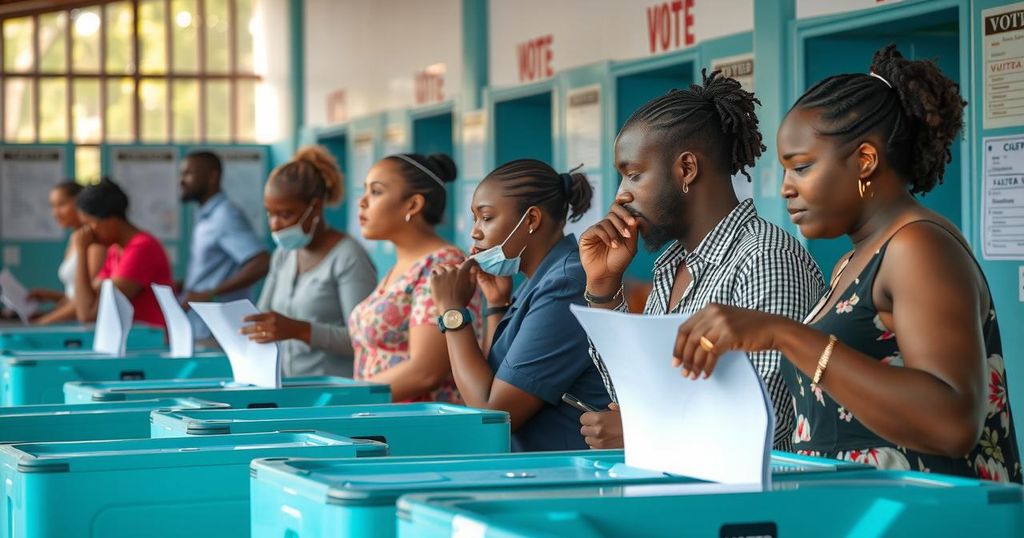Comoros Holds Parliamentary Elections Amid Political Tension and Allegations

Voters in Comoros are casting ballots for a new 33-seat parliament amid allegations of past electoral irregularities and criticisms of President Azali Assoumani’s authoritarian rule. Approximately 338,000 citizens are registered to vote as nearly 100 candidates vie for election. Despite calls for a boycott, some opposition leaders argue for participation to expose systemic flaws. Results are anticipated by Friday.
Voters in the Comoros islands are participating in parliamentary elections for the archipelago’s 33-seat legislature, occurring a year following the controversial re-election of President Azali Assoumani. This electoral process comes amid allegations from the opposition regarding significant irregularities in the previous election. Polling stations opened on Sunday, with approximately 338,000 registered voters ready to make their choice. As the nation prepares to elect representatives, nearly 100 candidates have been approved by the Supreme Court to run for office.
Assoumani, who has been in power since 1999 following a coup, stands accused by his opponents of authoritarianism and of grooming his eldest son for succession. In a notable move, his son, Nour El-Fath, was granted extensive powers in 2024 to oversee government operations, which has raised additional concerns among the opposition. Calls for a boycott of the elections have been made by some factions, particularly the Juwa party, led by former President Ahmed Abdallah Sambi, who is currently imprisoned. Contrarily, other parties within the opposition have chosen to participate in the elections, deeming it an opportunity to reveal the administration’s weaknesses.
Hamidou Karihila, a candidate from the opposition Hope of the Comoros party, remarked, “The Azali regime is weakened … by participating in these elections we are contributing to further exposing the flaws in its system and accelerating its inevitable fall.”
The governing party has dismissed allegations of electoral malpractice, stating they are unfounded. Results from the elections are anticipated to be reported by Friday, as the citizens of Comoros express their democratic rights in a politically charged atmosphere.
The Comoros, an Indian Ocean archipelago, has a history of political instability marked by coups and controversial elections. President Azali Assoumani has held power since a coup in 1999, and his rule has been characterized by frequent allegations of authoritarianism, especially following the political changes that have occurred over the years. The parliamentary elections are crucial, taking place after a period of unrest and criticism from opposition parties who question the legitimacy of the government. The potential for political transformation hangs in the balance as voters decide their representatives amid heightened tensions and conflicting calls for election participation.
As the Comoros embarks on parliamentary elections, the political landscape remains fraught with tension. Allegations of irregularities from previous elections persist, leading to a polarized atmosphere between the ruling party and opposition factions. The participation of some opposition groups signals a strategic move to challenge the current regime’s integrity. The outcome of these elections could significantly influence the future of governance in the Comoros, with results expected shortly.
Original Source: www.singletonargus.com.au







